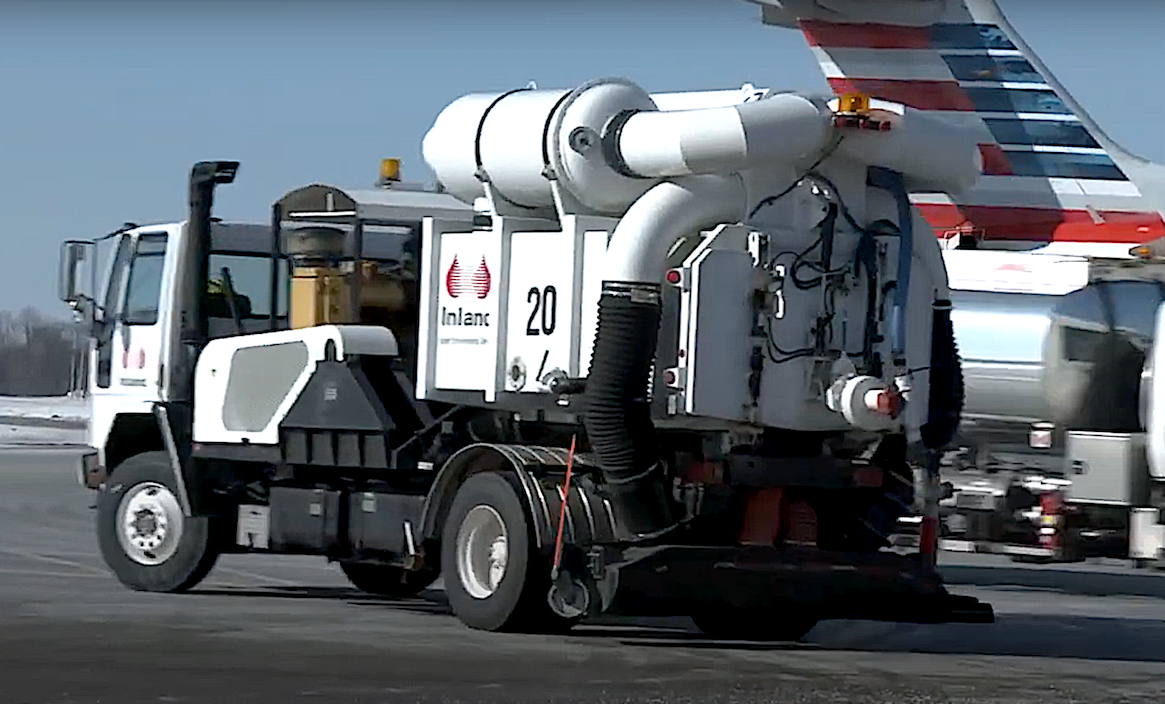Environmental initiatives highlighted at county airport
Westchester County Airport has taken two actions designed to help minimize environmental impacts from operations carried out there. County Executive Ken Jenkins and other officials held a Jan. 28 briefing at the airport to describe what is being done.
A pilot program has been started to use renewable diesel fuel for various ground vehicles. Also, the county is using a special vacuum truck to capture de-icing fluid that runs down onto the pavement during the process of de-icing an airplane.
During cold weather when there is precipitation or known icing aloft aircraft are sprayed with de-icing fluid that consists of glycol and water. There are four types of fluid with viscosity that varies depending on how long the fluid is expected to remain on the aircraft’s surfaces once the plane is flying.

The renewable diesel fuel pilot program is part of a four-season trial to test the use of this fuel alternative on the airport’s fleet of vehicles used in ground support of aircraft. These vehicles perform functions such as carrying baggage from the terminal to aircraft and towing planes. The biofuel alternative, which offers cleaner combustion compared with traditional diesel, will be evaluated for performance and cost-effectiveness across varying seasonal conditions. At the conclusion of the trial, the airport will conduct a cost-benefit analysis to determine the feasibility of adopting renewable diesel for its entire diesel-powered fleet.
“We are thrilled to enhance our environmental program at the airport through these two initiatives,” Westchester County Executive Ken Jenkins said. “Adding the Glycol Vacuum System is an important step to prevent the contamination of our water streams. And by exploring renewable diesel, we’re not only working to reduce emissions but also setting an example for how we can balance environmental responsibility with operational efficiency.”
The county’s Director of Energy Conservation and Sustainability Peter McCartt said, “By efficiently capturing and disposing of de-icing fluids, we are taking meaningful steps to protect local waterways and ensure that our airport operates in a way that continues to align with and advance our community’s sustainability goals. And the transition to renewable diesel has the potential to significantly reduce our environmental footprint without compromising performance.”
According to Jenkins, “Both initiatives underscore both Westchester’s and Westchester County Airport’s dedication to a cleaner, greener future for the community. We must continue to look for opportunities to evaluate and implement innovative technologies that can help us build a more sustainable future.”
Airport Manager Francisco Tejada characterized the renewable diesel trial as “a key part of our strategy to reduce our overall carbon footprint. We’re proud to lead the way in adopting practices that benefit both the environment and the aviation industry.”